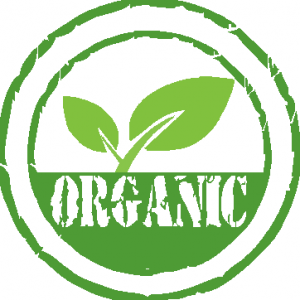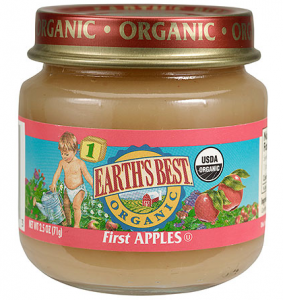20 Dec Is Eating Organic Foods Worth The Extra Money?
Is Eating Organic Foods Worth The Extra Money?
One of the topics I receive a ton of emails about is ‘organic food’. In one form or another people want to know if I think eating organic is important, if it is worth the extra cost, or is it all just hype?
Many of you have followed me on Facebook for some time, and know that for the most part, I choose to primarily eat unprocessed, organic foods when I can.
Read my reasons below and make the best decision for you and your family.
I Feel That the Extra Expense is Worth it to Me and My Family and Here is Why:
- NO TOXINS: Would you rather eat food that had chemicals and pesticides all over it, or one that didn’t? I know it isn’t always practical to eat EVERYTHING organic, but there are definitely foods where it is more important than others. I have included a list of 12 foods you should really try to get organic when you can.
- NO GMO’s: The use of GMOs (genetically modified) within organic systems is not permitted during any stage of organic food production or processing.
- HEART HEALTHY: Organic milk and meat are typically HIGHER in CLA (conjuated linoleic acid) and Omega-3’s. BOTH are heart healthy fats that can improve our health.
- OUR CHILDREN’S HEALTH: Organic food diets in children GREATLY reduce exposure which can lower pesticide levels in children’s bodies.
- NO PESTICIDES: Over one billion pounds of pesticides are used in the United States each year on our crops. We then consume some of these chemicals as pesticide residue on fruits and vegetables. We CONSUME these when we eat non organic.
- PREGNANCY: During pregnancy, these chemicals we eat will reach your baby through the umbilical cord and will be passed through your breast milk if you choose to breast feed.
 TASTE: You can TASTE a difference in organic vs. non organic food. Don’t believe me? Do a taste test yourself! Purchase some organic and non-organic berries. Close your eyes and taste them. Prove me wrong and tell me that you can’t taste a difference.
TASTE: You can TASTE a difference in organic vs. non organic food. Don’t believe me? Do a taste test yourself! Purchase some organic and non-organic berries. Close your eyes and taste them. Prove me wrong and tell me that you can’t taste a difference.
I Believe it is BETTER for the Environment and Better for the Animals.
- Raising organic livestock means that they are fed good nutrition which ultimately keeps them healthy, strong and productive.
- Animals are given humane living conditions instead of putting them in inhumane conditions (no freedom of movement), fed additives, grains and steroids to promote quick unnatural growth (for greed) and using medicine to prevent the spread of disease
 Animals are NOT given antibiotics, injections of artificial growth hormones which ultimately WE would end up consuming.
Animals are NOT given antibiotics, injections of artificial growth hormones which ultimately WE would end up consuming.- Our water and land benefit by not getting contaminated with toxic persistent chemicals.
- Organic farmers use less energy and less water resources. They rarely have to burn their fields because the soil consistently stays rich in content and nutrients.
- Animals raised as organic are not permitted to be given antibiotics, growth hormones, fed GMO foods and are fed a wider variety of nutrients than conventional livestock. Consequently, their meat and dairy products are healthier for you and your family. If organic dairy products are not available, try to purchase products that are NOT from animals given BST (bovine somatotropin). BST is essentially a growth hormone given to livestock to help them produce more milk.
- Organic chickens that have been fed organic feed with no hormones, GMO’s, or antibiotics. Commercial and natural chickens can be injected with water, salt, and preservatives to add moisture, and boost flavor BUT gives them a higher sodium level. A recent University of Georgia study found that chickens from organic farms had a 4.3 percent rate of salmonella prevalence. The conventional chickens on the other hand, were affected 28.8 percent of the time… nearly seven times more.
How Do You Know if What You are Eating is Organic?
 Grow it yourself , buy local, OR read the labels. In the stores, foods must meet the USDA organic standard to wear this label. If it is not, it likely is not organic.
Grow it yourself , buy local, OR read the labels. In the stores, foods must meet the USDA organic standard to wear this label. If it is not, it likely is not organic.
Farmer’s markets are popping up all over the place. Check (www.localharverst.org) to find one in your area. The food is locally grown, fresher because it’s not transported across the country or the globe, usually less expensive and you are contributing to your local economy.
There are several classifications of organic:
100% organic– products must be completely organic or made with ALL organic ingredients
Organic- must be at least 95% organic
“Made with organic ingredients”– Products with at least 70% organic ingredients, but CAN’T wear the organic seal.
“Natural” – does NOT mean organic. It’s more of a marketing term, so don’t be fooled!
What if you choose not to buy organic? I am not going to say “it is ok”, I would be doing a disservice based on my own beliefs. What I will say is “do what you can to start and at least stay away from the Dirty Dozen.’
As I mentioned earlier, these foods are BEST purchased organic as their conventionally grown counterparts are shown to retain the highest amounts of harmful chemicals. They are ranked in order of worst offenders by the EWG (Environmental Working Group) and are commonly referred to as “The Dirty Dozen”!
- Apples
- Celery
- Bell peppers
- Peaches
- Strawberries
- Nectarines- imported
- Grapes
- Spinach, Kale, Collard Greens
- Lettuce
- Cucumbers
- Blueberries & other thin skinned berries – domestic
- Potatoes
What About Organic Baby Foods?
YES!!! You spent your entire pregnancy worrying about the health and well-being of your baby to be, don’t stop now! Buy organic fruits & vegetables in baby food varieties following the same rules. If it’s one of the dirty dozen, buy the organic variety of baby food.
Although it is very hard to eat organic food 100% of the time, I am personally committed to eating organic MOST of the time. When I do not have access to organic food, I look for food closest to it; Natural unprocessed foods that are non GMO.
Want to get started eating Organic but worried it will “cost too much?”
First of all, if you are primarily eating unprocessed natural foods, THOSE will be less expensive than processed foods over all. Also, if the health benefits are there and you recognize them, wouldn’t you rather spend a little more to avoid the health costs associated with eating non-organic later?
Excuses or Solutions, YOU decide!
Natalie Jill

